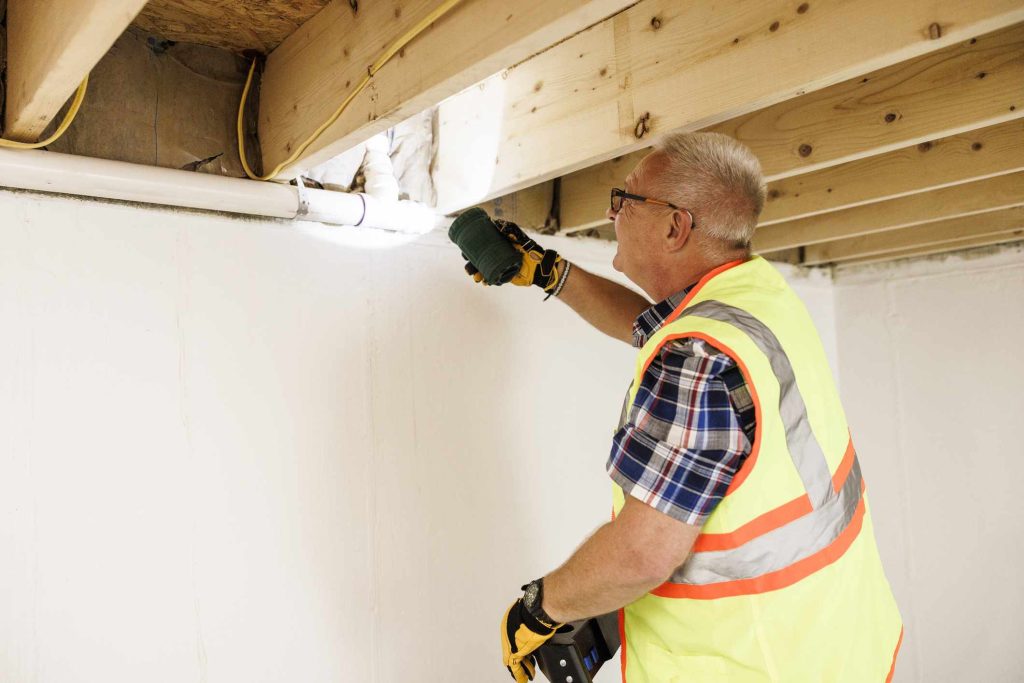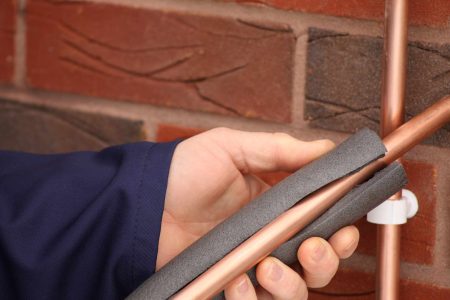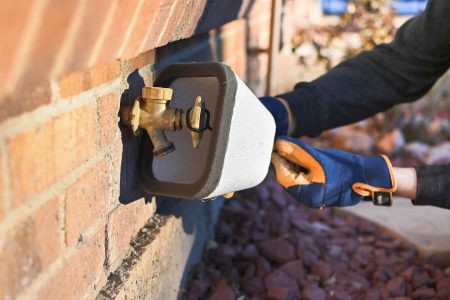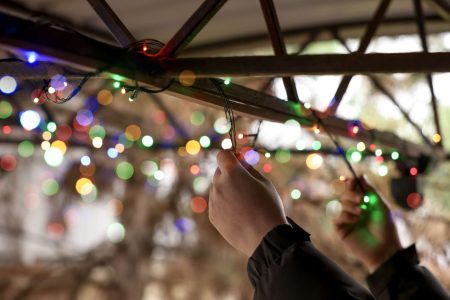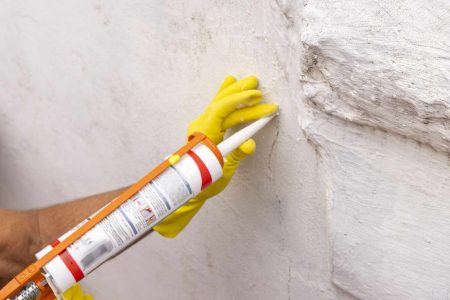Home inspections are typically conducted during the selling process when a buyer wants to get an in-depth look at the property before investing. While home inspections are not required by most lenders, they are a good idea to ensure that there aren’t any costly problem areas or red flags that stand out, like a failing furnace or air conditioning system.
Generally, a home inspection will take about two to three hours to complete for a single home inspector. However, some companies will send a pair of inspectors out, allowing them to finish the job in about 90 minutes for the average house, though some factors can increase the time.
Learn more about how long home inspections take and what you can expect.
Meet the Expert
Alex Capozzolo is a licensed realtor who co-founded Brotherly Love Real Estate in Philadelphia, Pennsylvania. He has been investing in real estate for over a decade and currently holds a portfolio of 14 residential units and two commercial units.
What Is a Home Inspection?
A person who is interested in buying a house will typically hire a professional home inspector to conduct a thorough evaluation of the exterior and interior of the home to ensure they are not investing in a property with hidden issues.
Home inspectors focuses on examining the major components of the home, including the foundation, plumbing, electrical, and home systems, but they do not note cosmetic defects, like chipped or faded paint. While a home inspection is not required in most instances, some mortgage lenders may request a home inspection if the purchase price is notably higher than the price of the listing or if they have other concerns about the value of the property.
Depending on what the home inspector finds during the inspection appointment, the prospective buyer may back out of the purchase or the negotiations may need to be reopened to discuss repairs or for the buyer and seller to come to an agreement on a different purchase price based on the inspector’s findings.
Want more home reno project tips and inspiration? Sign up for our free daily newsletter for the latest how-tos, reno guides, and more!
What Do Home Inspectors Look For?
When a home inspector is walking around the outside of the home and combing through every room inside the home, they are examining the major components of the property.
- Exterior inspections will generally involve the inspector checking the foundation, roof, windows, doors, gutters, garage, patios, decks, sidewalk, driveway, and irrigation system.
- Interior inspections focus on the major home systems, like the furnace, water heater, and air conditioner, but home inspectors will also look at the plumbing lines, electrical, ceilings, floors, interior walls, basement, and appliances.
How Long Does a Home Inspection Take?
In most cases, a home inspection for an average-sized property will take about two to three hours to complete, though it may take longer if the home is in poor condition or if the inspector has to move any objects to gain access to specific areas of the house. Even with a pair of inspectors, the inspection process will still take about 90 minutes to complete.
Homes that are larger than 2,000 square feet can add to the total duration of the inspection, with every additional 500 square feet of space requiring an extra 30 minutes to inspect.
“In some cases, the inspector may also need to return for a follow-up inspection if there are any major issues that need further evaluation or repair,” says Alex Capozzolo, Realtor and Co-Founder of Brotherly Love Real Estate.
Due to the potential for a follow-up appointment, discuss the expected duration with the inspector before hiring them.
How to Pick a Home Inspector
A home inspector needs to have the skills, experience, and general know-how to identify any problem areas throughout the home.
“You should ask about the inspector’s qualifications, experience, and certifications” Capozzolo says, noting it’s best to do this before hiring them.
It’s also important to ensure the inspector is familiar with local building codes and regulations, and that the company has a good reputation for quality work. Ask the inspector to provide references from previous clients, and discuss the inspection process, as well as any additional services or reports that may be included in the inspection.
How Much Does a Home Inspection Cost?
The prospective buyer is typically responsible for the cost of a home inspection, though they may have their realtor handling the booking. On average, a home inspection can cost between $200 to $500. The final price depends on several key factors, including the size of the home, the location of the property, and the depth of the inspection report.
Before hiring a home inspector, research at least three reputable home inspection companies in the area and get price estimates for the work. This will help you get a general idea of the local cost, while narrowing down the choice of home inspection companies.
Preparing for a Home Inspection
Both buyers and sellers should prepare in advance for a home inspection to ensure that the appointment is carried out as easily as possible.
- Buyers will want to carefully review the disclosure form completed by the seller and discuss the details with the home inspector. Buyers should note any specific issues they want the inspector to examine and set aside about two to three hours to accompany the inspector during the inspection appointment.
- Sellers should fill out and submit a disclosure form to the buyer before the inspection so that the buyer and home inspector are aware of any existing problems. Conduct a brief pre-inspection to look for any issues you may have missed, while compiling a list of repairs that have been made recently for the buyer to review. Sellers will need to ensure all areas of the property are easy to access, so the home inspector can complete the inspection appointment without issue.
When Does a Home Inspection Happen?
A home inspection can take place at any time. Homeowners that want to get to know their home better can hire an inspector to conduct a thorough investigation of the property to uncover any hidden problems. However, most home inspections will take place when the home is put up for sale.
After the seller has accepted an offer on the property, but before the final sale of the house, the buyer will be able to schedule a home inspection appointment. Depending on the results of the home inspection, the buyer may need to renegotiate the terms of the sale to ensure they are not stuck with a poor investment.
What Happens After a Home Inspection?
Once the home inspection is complete, the inspector will compile their findings in a home inspection report. The report is then presented to the buyer about three to four days after the home inspection takes place. When the buyer receives the inspection, they can review it with their real estate agent and use the details to renegotiate the terms of the purchase.
Buyers may ask the seller to complete specific repairs or may decide to negotiate a lower price, taking into account the necessary investment to fix any outstanding issues. In some cases, the inspection report may even provide grounds for an offer withdrawal, especially if the buyer had a contingency in the purchase agreement that covered the total cost of repairs.
Home Inspection Red Flags
When the buyer receives the home inspection report, they should review it with their realtor to identify any problem areas, like the roof, foundation, gutters, windows, doors, electrical, plumbing, and appliances.
- Roof replacement is one of the more costly repairs a new homeowner may encounter, so if the inspection report notes that the roof is poorly maintained with missing shingles and areas where water pools, the home may not be worth the investment.
- Foundation problems, like major cracks, sunken areas, or evidence of moisture issues should be brought up with the seller to ensure repairs are completed before purchase.
- Windows and doors that are warped, ill-fitting, broken, or poorly sealed can indicate that the home has low efficiency, leading to higher energy bills. Discuss repairs or potential price negotiations to handle this issue.
- Gutter systems are designed to protect the sides of the home and the foundation, so if the home inspection notes that the gutter system is in poor condition, this is a clear red flag that should be addressed with the seller.
- Pest infestations, such as termites, squirrels, mice, or rats, should be taken care of by the seller before the sale is finalized. However, buyers need to be aware that pest issues may reoccur if they do not take preventative steps to stop the pest from returning.
- Electrical issues, like faulty wiring or an outdated electrical panel, can indicate serious problems with the home. Buyers are recommended to discuss these issues with their realtor before deciding whether to proceed with the purchase of the home.
- Plumbing problems are also a significant issue due to the potential for hidden damage. A simple leak can be fixed up easy enough, but if that pipe has been leaking behind a wall for years, there is a high chance of mold, rot, and water damage.
- Appliances that are outdated or in poor condition can be a costly problem to fix. Especially major home systems, like the furnace, air conditioner, boiler, or water heater. Work with the seller to renegotiate the price or ask for the appliances to be repaired or replaced before finalizing the purchase.
- Asbestos and mold should also be noted and addressed if they appear on the inspection report. Mold remediation tends to be less expensive than asbestos removal, but it is still a costly process that the buyer doesn’t want to be on the hook for after purchasing a new home.
-
Who attends a home inspection?
While the only one that needs to attend the inspection is the home inspector, most buyers will either attend themselves or have their realtor attend.
-
Is a home inspection mandatory?
Some lenders may require a home inspection, but in most cases, a home inspection is not a mandatory process required by law or by most mortgage lenders.
-
What is a conditional offer on a home inspection?
A conditional offer refers to an agreement between the potential buyer and the seller, which states that the buyer will make an offer on the home when a specific condition is met. So, a conditional offer on a home inspection typically means that if the home passes the inspection, the buyer will make an offer on the home.
Read the full article here
